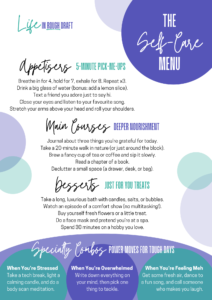
There’s something magical about a quiet room, a closed door, and no one asking, “What’s for dinner?” Time alone isn’t just a break from the chaos – it’s your chance to recharge, reflect, and reconnect. In a world obsessed with busyness, solo time can feel indulgent, but it’s absolutely vital for your well-being.
Let’s explore why time alone is important, what happens when you skip it, how to gently explain your need for it to loved ones, and some creative ways to make the most of it. Oh, and introverts? This one’s especially for you.
The benefits of solitude
Why time alone is important can’t be overstated – it’s like a power nap for your soul: short, sweet, and utterly rejuvenating. It’s your chance to hit reset, untangle your thoughts, and rediscover your inner calm.
- Mental clarity: Solitude clears the mental clutter, giving you the space to process your thoughts without interruptions, opinions, or TikTok notifications. A study by psychologist Thuy-vy Nguyen from Durham University found that spending time alone can boost mental clarity by allowing for uninterrupted self-reflection. (Source: American Psychological Association)
- Creativity boost: Ever notice how your best ideas show up in the shower or on a solo drive? A 2017 study published in the journal Academy of Management Discoveries suggests that solitude fosters creativity by allowing the mind to wander and form unique connections. (Source: University at Buffalo)
- Emotional recharge: Constant interaction can drain your emotional reserves. Time alone helps you process feelings, release stress, and refill your cup. As Dr. Ester Buchholz, a clinical psychologist, notes in her book The Call of Solitude, “Solitude is where we find ourselves so we can reach out to others without losing our own identity.”
The problems with not having time alone
Without time to reset, life’s minor annoyances become monumental. A loud chewing noise? Unbearable. A slow driver? A personal attack. When your tolerance is depleted, small irritations hit like meteors.
Worse, losing touch with yourself is a real risk. Surrounded by constant chatter – IRL or online – you might forget your preferences, your boundaries, even your identity. Do you love Thai food, or is it just the easiest group choice? Alone time helps you recalibrate and remember who you are outside the noise.
And then there’s burnout: that special kind of exhaustion where even your favourite tasks feel like chores. Without solitude to decompress and lower stress levels, burnout can sneak up on anyone. Time alone provides the necessary space to rest and reset before overwhelm takes over.
A lifeline for introverts
For introverts, solitude isn’t a luxury – it’s oxygen. While extroverts recharge in the crowd, introverts need alone time to sift through thoughts, process emotions, and regain energy. Without it, the world feels overwhelming, and even the most enjoyable social interactions drain rather than delight.
Introverts: think of solitude as your fast charger. It’s how you thrive, not just survive. Dr. Laurie Helgoe, author of Introvert Power, explains, “Introverts recharge by reflecting and rebalancing. Solitude isn’t antisocial – it’s essential.”
Guilt-free time alone
Requesting solitude can feel tricky, especially with loved ones. Here’s how to manage it gracefully:
- Frame it positively: “I need to recharge so I can be my best self for you” sounds a lot better than “I need a break from you.”
- Set expectations: Be clear about when and how long you need – e.g., “Saturday morning is my time to read and relax.”
- Reassure them: This isn’t about escaping them; it’s about recharging you.
- Normalise it: Make alone time a regular thing so it feels like part of your routine, not a rejection.
Creative ways to spend your solitude
Wondering what to do with your hard-earned alone time? Here’s some inspiration:
- Dive into a passion project: Paint, bake, knit, or build – anything that lets you create for the joy of it.
- Write it out: Journaling or creative writing can help you process emotions or spark your imagination.
- Explore nature: Take a walk, photograph plants, or just soak up the silence.
- Get lost in a story: Read a book or watch a film that inspires or entertains you.
- Rediscover play: Build a puzzle, make LEGO art, or try something completely whimsical.
Solitude is your time to do whatever makes you feel alive, inspired, and at peace.
Making the most of your time alone
Finding alone time can feel impossible, but it’s not. Try these strategies:
- Schedule it: Treat alone time like any other important appointment.
- Start small: Even 10 minutes can be restorative.
- Wake up earlier: Carve out quiet moments at the start of your day.
- Say no: Protect your schedule by gracefully declining unnecessary commitments.
The more you prioritise solitude, the easier it becomes to protect it.
Why time alone is important – a final word
Time alone isn’t just a theoretical concept – it’s a lifeline. Whether you’re an introvert recharging your batteries or an extrovert in need of a breather, solitude is essential for mental clarity, creativity, and emotional balance.
So shut the door, find your quiet corner, and revel in the sound of … nothing. You’ve earned it.
Overwhelmed and unsure how to recharge?
Say “hello” to your Self-Care Menu!
Exhausted? Burnt out? Running on fumes and cold coffee?
It’s time for a little TLC, my friend.
Sign up for my emails and get The Self-Care Menu – a smorgasbord of simple, soul-soothing practices designed to help you refuel before you snap at your next Zoom meeting.

